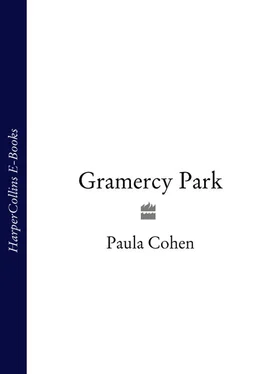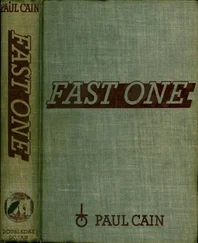1 ...7 8 9 11 12 13 ...22 Take, for instance, the unexpected approach of the tenor last night, with his ridiculous offer to buy the Slade house. He—Chadwick—had been irked at the time, it is true, but his annoyance was as much a reaction to the high-handed manner of the man who made it as it was to the proposition itself. Reflecting upon it quietly this morning, however, over his eggs and toast, it occurs to him that the Italian has done him a very great favor. The sale will do more than merely fill the coffers of the Slade estate to better than overflowing and relieve him of an unnecessary burden (as Alfieri had so astutely pointed out, to give the Italian devil his due); it will also provide him with the opportunity to bring to fruition a plan—a most important plan—which has merely been waiting for the right set of circumstances to occur before he could set it in motion.
And this is the time. He has not grown rich in the service of others by failing to know when the proverbial iron is hot enough to strike, and the tenor’s desire to own the Slade house has suddenly fired this particular metal to white heat. Chadwick is pleased, with himself as well as with events. Alfieri’s arrogance—and particularly his insolence in requesting the girl—is something he can easily put by … for now. It is important to maintain one’s mental balance, however, for the mind functions best when not clotted up with petty annoyances and ill humors; and besides, as the Italians themselves say, revenge is a dish that is best tasted cold.
But he is in no hurry. Nothing must disturb the routine—serenity, always serenity—and a glance at the clock tells him that he has the better part of an hour yet, before his scheduled arrival at his office. The documents needed to put his plan into effect are already prepared—they have been so for months—and are waiting to be filed with the courts; all that remains is for him to affix his signature.
With a small sigh of contentment, Chadwick folds back his newspaper, pours himself more coffee and, raising the cup to his lips, mentally salutes Alfieri. Because of the tenor, the greatest plum of his—or, indeed, anyone else’s—life is almost within his grasp. And if it takes a little time for his fist to close about it … well, what of that? Lighting his first cigar of the morning, he gazes out into the flower-decked garden, a happy man with all the time in the world.
The clock moves on, and noon finds Alfieri en route to his appointment with the attorney who will do battle on his behalf for the house of the late Mr. Slade. The morning has not been easy for him; he has had the curious sensation, since waking from a fitful sleep—and a brief one, as he, too, had left Mrs. Astor at dawn—that every passing minute poses some increasing threat to the solitary child in the great, empty house, and he keeps a preoccupied silence during the ride downtown.
He is accompanied by his friend of the previous evening, Stafford Dyckman, who has known the tenor long enough to recognize when speech will be unwelcome; long enough, indeed, to be quite comfortable in the complete absence of any conversation. He sits wordlessly beside Alfieri as their carriage threads its way through the noontime crush of lower Broadway, intruding only occasionally upon his friend’s thoughts to point out some feature of interest on the bustling New York pavements.
Their destination, the offices of Daniel Buchan, Esq., is very near Wall Street, and so close to the graveyard that surrounds Trinity Church that its second-floor windows look directly out onto the weathered, tilted stones of the green and quiet burial ground. Dyckman makes the introductions as the church’s chimes ring out a quarter past noon.
“Your view is quite beautiful, Mr. Buchan,” Alfieri says as he and the attorney shake hands, “but perhaps somewhat … suggestive for your clients?”
“Actually, Signor Alfieri, the view is for my improvement. I find it most helpful. On those occasions when I succeed for a client, this view helps me to maintain my sense of proportion. It serves the same function as the slave who would ride in the chariot with the hero during ancient Roman triumphs, whispering ‘Remember, you are mortal.’” He is as dark as Alfieri, but small and balding, and his brown eyes are bright and very shrewd.
“On the other hand,” he says, ushering his guests to their chairs, “on those occasions when I do happen to fail, I look out the window and take solace from the fact that, win or lose, we all come to the same end eventually.”
“A comforting sentiment, to be sure,” Alfieri says, smiling. “But as I am considering retaining your services, Mr. Buchan, I would be a great deal happier if you could assure me that the former occurs considerably more often than the latter.”
“Often enough to pay the rent,” the attorney replies with an answering smile. “Now, Mr. Dyckman has explained very briefly what it is that you wish to do, signore. Might I ask you to provide me with more detail?”
The matter is quickly explained.
“This is very intriguing. I know Mr. Chadwick well,” Buchan says, leaning back with his elbows on the arms of his chair and his fingertips pressed together, forming a steeple. “He and I have been on opposing sides many times over the years, and I know that he is not an easy man to sway. And yet you say that he seemed open to consideration?”
“Of the purchase of the house, yes.”
“But that is the important thing, surely?”
Alfieri shakes his head. “Important, yes. But not more important than the house’s current occupant. I do not wish to disturb her, or be the cause of her displacement.”
“And are you willing to make that a condition of the purchase?”
“Meaning do I wish you to tell Mr. Chadwick that if he insists upon moving the child I will retract my offer? If you feel that that will carry weight with him, by all means, Mr. Buchan, make that a condition.”
“And if he still insists, Signor Alfieri? If he calls your bluff? Will you then withdraw your offer?”
“Yes, Mr. Buchan, I will.”
“And yet you tell me that you want the house very much.”
“Very much. But not enough to cause a little invalid to be made homeless.”
Buchan sits up. “Signor Alfieri, there is one point upon which I must satisfy myself. I hope that you will not take offense if I touch upon a … well, a rather sensitive matter.”
“I am here seeking your assistance, Mr. Buchan. Ask me whatever you wish.”
“Thank you,” the lawyer says. “But perhaps Mr. Dyckman wishes his luncheon? It is unfortunate that we have to meet at such an awkward hour, but I see no reason to deny him his sustenance, signore, even though you and I may be here for some time, yet.”
Alfieri nods at the young man. “If Stafford wishes to leave, I certainly will not stop him. But I have nothing to hide from him, Mr. Buchan. We have known each other for years.”
“As you wish, of course. I will be blunt, then. Before I agree to represent you, I must be confident of your intentions in this matter. You see”—he hesitates, choosing his words judiciously—“your reputation for more than merely singing has preceded you across the ocean. The rumors of your, let us say, ‘expertise,’ signore, with the ladies have been making the rounds of every gentlemen’s club in this city for weeks.”
Alfieri says evenly: “And you wish to know if they are true, Mr. Buchan?”
“I wish to know if they have any bearing on your desire to have the late Mr. Slade’s ward remain in his house.”
Dyckman, silent until now, turns red to his ears and opens his mouth to speak, but a swift gesture from Alfieri checks him.
“My tastes do not run to children, Mr. Buchan, if that is your concern.”
“And Miss Adler is not a child, Signor Alfieri; she is a young woman, and therefore your tastes become very much my concern—especially as their catholicity has become a topic of general discussion.” He stops, shaking his head. “I am truly sorry, signore,” he continues more gently. “I do not enjoy treading on such delicate ground, nor do I wish to cause you undue embarrassment. But if I am to argue for Miss Adler to remain in your house, I must be absolutely certain that she will come to no harm.”
Читать дальше












